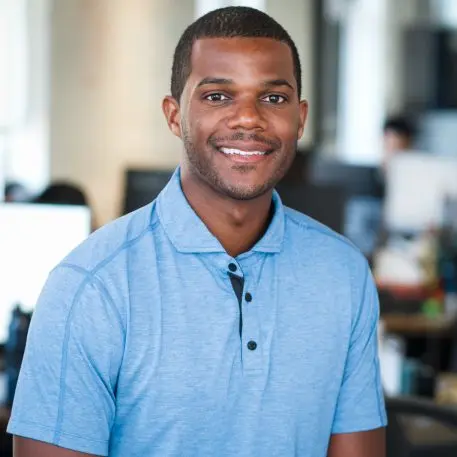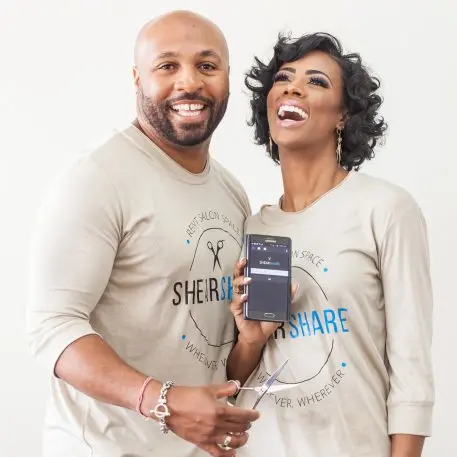If last year felt like a never-ending avalanche of shocking headlines, push notifications, and crises to react to–plus a big heaping spoonful of mindless distractions dumped on top of all that–well, you aren’t alone. By the close of 2017, some of the most productive CEOs out there told me they’d developed some bad habits as a result of a particularly hectic year. These are some of their top issues, and how they’re planning to cope with them over the next 12 months.
Related: 10 CEOs On How They Coped With 2017’s Unrelenting News Cycle

Bad Habit No. 1: Listening While Distracted
For Porter Braswell, CEO of diversity hiring platform Jopwell, communicating with others fell victim to the curse of multitasking. We’re all guilty of that once in a while–say, by reading the news, perusing social media, or sending emails during meetings.
But Braswell says he’s working especially hard to keep his one-on-one interactions with other people free of those distractions this year. “When I left my job in finance to start Jopwell,” he recalls, “a close mentor of mine gave me a lot of great leadership advice: Always make sure you give your team your full and undivided focus, no matter how hectic it can feel to run a startup. Putting your phone away and ignoring your email for a half-hour while you meet with someone can make a big difference in that person’s experience working with you,” Braswell says.
If offering your undivided attention is getting harder than it used to be, that’s all the more reason to commit to it.
Related: These Emotionally Intelligent Habits Can Make You A Better Listener

Bad Habit No. 2: Working When You’re Not At Work
Of course, that’s no easy feat. “Like most entrepreneurs and CEOs, I am unable to shut off,” says Tricia Martinez, founder and CEO of blockchain-powered fintech platform Wala. “I am wired to work around the clock, which I believe is a good thing, but it can also create more stress.”
Since Martinez’s cofounder happens to be her significant other, she echoed something I’ve heard from other CEOs who work with their spouses and partners (but which is hardly limited to them): “We work around the clock, go home and work around the clock, and spend the weekends working,” she says, adding that it’s been a struggle to “learn how to shut off.”
That’s also true for Melanie Elturk, who runs a brand called Haute Hijab with her husband. Last year they took their business out of the apartment they shared and into an office with three full-time employees. “As a result, I haven’t quite learned the art of saying ‘no’ and finding time for myself to really work through my own projects,” says Elturk, “so I end up working for hours when I get home.”
These challenges can plague anyone who works on a close-knit team–not just founders–where a culture of camaraderie and mission-driven, eye-on-the-prize focus is a quick recipe for burnout. If overwork risks becoming a group activity, setting boundaries can be, too. Matt Straz, the CEO of HR software startup Namely, plans to spend the year ahead bringing in senior leaders to help him do just that.
By delegating certain tasks and responsibilities, Straz hopes, everyone will be able to stay in their own lanes and avoid stretching themselves too thin. Straz recently hired a chief of staff who, he says, has already “been a tremendous help, and we’ll be adding a few other key C-suite hires in the year to come.”
Related: Stress Is Making You Micromanage, Which Is Making Everything Worse

Bad Habit No. 3: Neglecting Self-Care
If you’re passionate about your work, taking the time to check in with yourself might not be on the top of your to-do list, but it probably should be.
Tye Caldwell, the CEO of ShearShare, a salon-space rental platform, says that’s something he wants to get better at this year. “I like [FounderForward investor] Robyn Ward‘s challenge,” he says. “Ask yourself: ‘Did I eat well, sleep well, hydrate well, move well, and socialize well today?’ It’s not always easy to check off each of those boxes,” Caldwell concedes, “but I’ve learned that it’s vital for me if I want to operate at peak performance.”
For some founders, prioritizing self-care also means making some resolutions lots of people do for much less business-like reasons. “Being a CEO of a startup, the highs are really high and the lows are really low,” says Dave Scott, CEO of standup comedy streaming service Laugh.ly. “Since I’m not a fan of illegal substances, I consume a massive amount of ice cream to keep my stress in check. In 2018, I look forward to breaking this habit and getting my waistline back again.”
Recognize your company's culture of innovation by applying to this year's Best Workplaces for Innovators Awards before the extended deadline, April 12.
